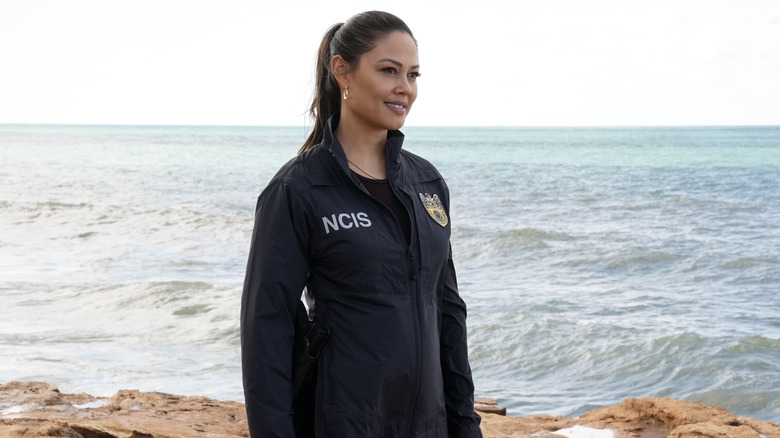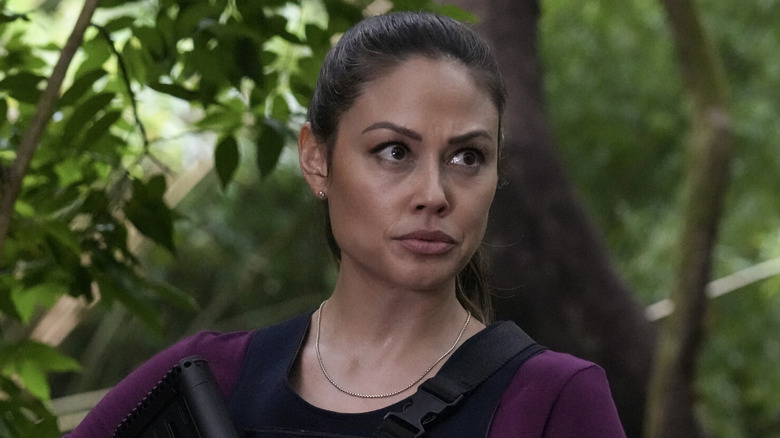Vanessa Lachey's Huge NCIS: Hawai'i Season 3 Twist Is Deeper Than Fans Think
Contains spoilers for "NCIS: Hawai'i" Season 3, Episode 7 — "The Next Thousand"
One major truth of "NCIS: Hawai'i" is that it's not abnormal for Jane Tennant (Vanessa Lachey) to be in major trouble. But "The Next Thousand" puts her in a world of hurt when she finds herself dealing with a concussion in the field. Attempting to track down the truth about the death of a Marine who died under suspicious circumstances during a training exercise, Jane and her team go deep into the jungle. Along the way, she hits her head and gets concussed. She seeks help from a woman maintaining a hidden cabin among the vines. Eerie coincidences soon pile up until the woman tries to shoot Jane. She awakes with a start, realizing she'd hallucinated the entire incident — but noting that the woman closely resembled the way her mother looked on the day she abandoned her
Reality begins to mismatch in subtle ways before this big twist revelation, and according to director Daniela Ruah, that was all intentionally done. Speaking with TV Insider, the actor-director explained her thought process. "That world when [Jane] goes into the cabin, that's her perception of the world, and she hasn't seen herself in the mirror," she said. "So if you'll notice, she doesn't even have a cut on her head. But then when we come out and see that she's alone in the cabin, she does have a cut on her head because that's the reality and she can't see herself, so therefore she doesn't see the blood. Therefore it's not there in her world that she's creating in that moment."
Ruah indicated that keeping that balance between reality and unreality anchored in Jane's feelings was crucial to the success of "The Next Thousand."
Daniela Ruah tried to keep viewers guessing
Daniela Ruah decided that keeping audiences credibly guessing throughout "The Next Thousand" was crucial to the episode's success. If Jane Tennant doesn't know what's real and what's an illusion, then the audience won't, either. "It was a fine line between tipping your hand too soon and making it so weird that the audience would be like, 'This doesn't seem right. This is probably a flashback, or this is probably something in our head,'" Ruah noted. She added that the key was progressively ramping up the episode's strangeness.
But it was equally important that Jane's vision also inform the viewer of who she is at her core. The discussion surrounding the look and tenor of the portrayal of Jane's hallucination of her mother was intensive, according to Ruah, as they wanted to be quite careful in how they portrayed the hallucination. "It's really, really important, the sense of, maybe her mother saw her as a bother, and so that's how she perceived this woman who opens the door and she's like, 'I don't want you here. I want you to leave,'" Ruah told TV Insider. Jane's belief that she might have been a burden and an irritation to her mother connects neatly with her feelings of abandonment, adding extra resonance to the episode.
Ultimately, that long, strange hallucination might go down in history as one of Jane Tennant's best moments on "NCIS: Hawai'i," and definitely a reason for fans to praise the character's strength. However, time will tell if it leads her back to her mother.

